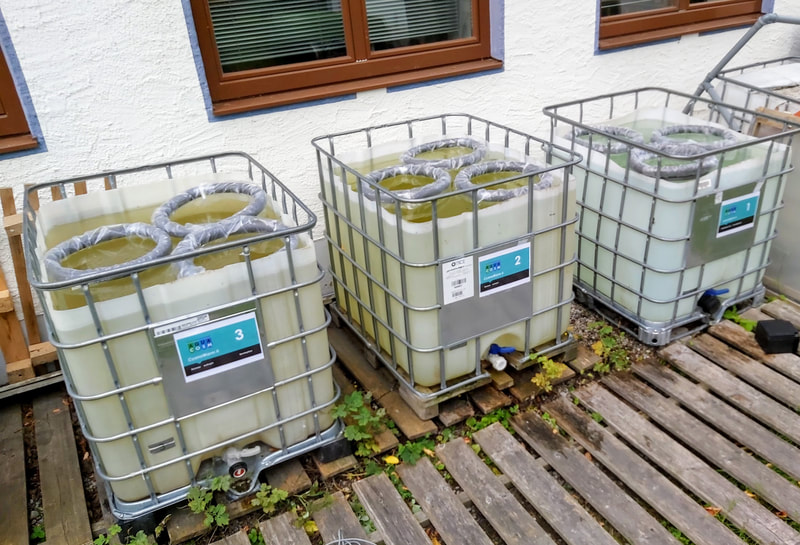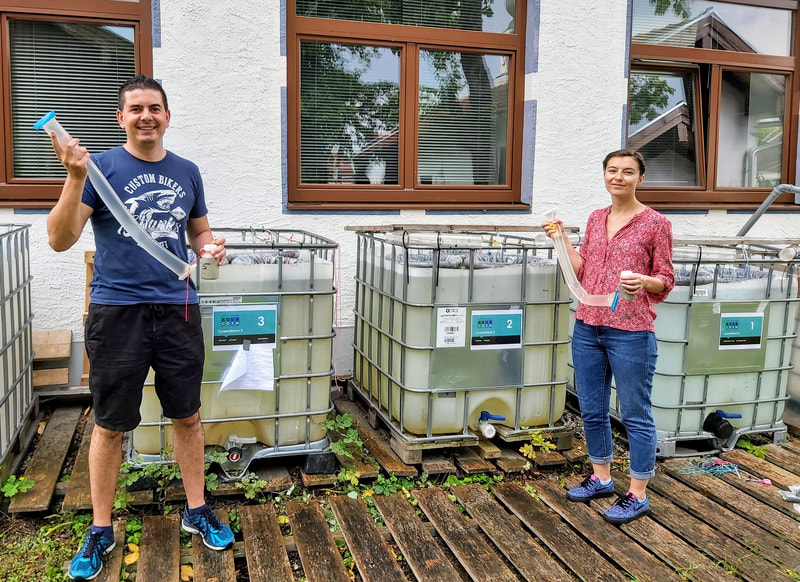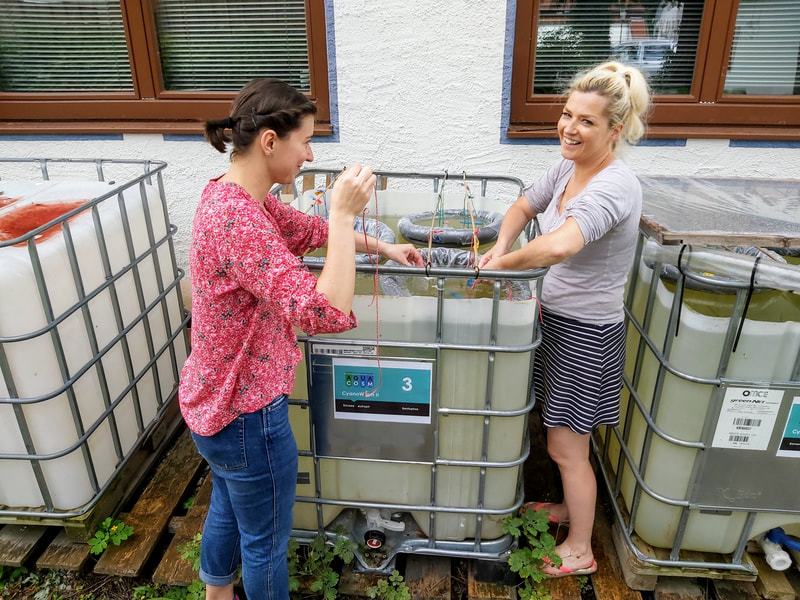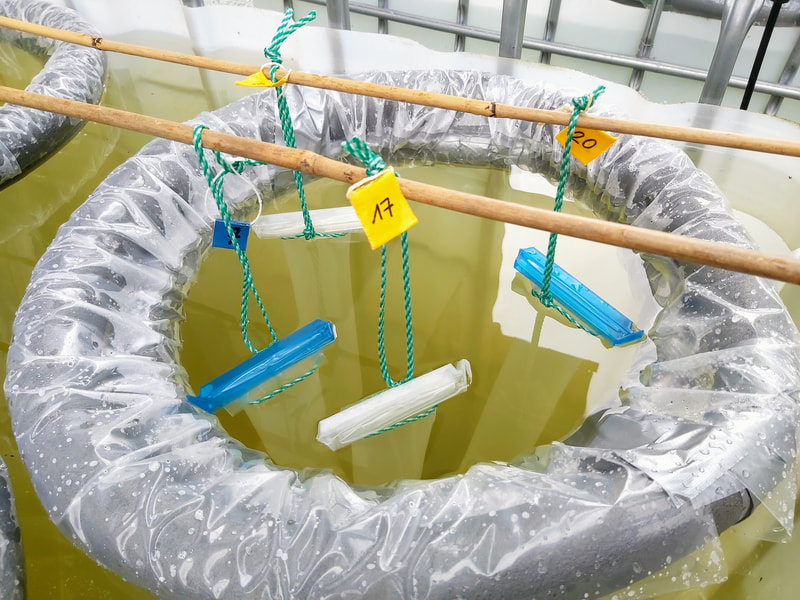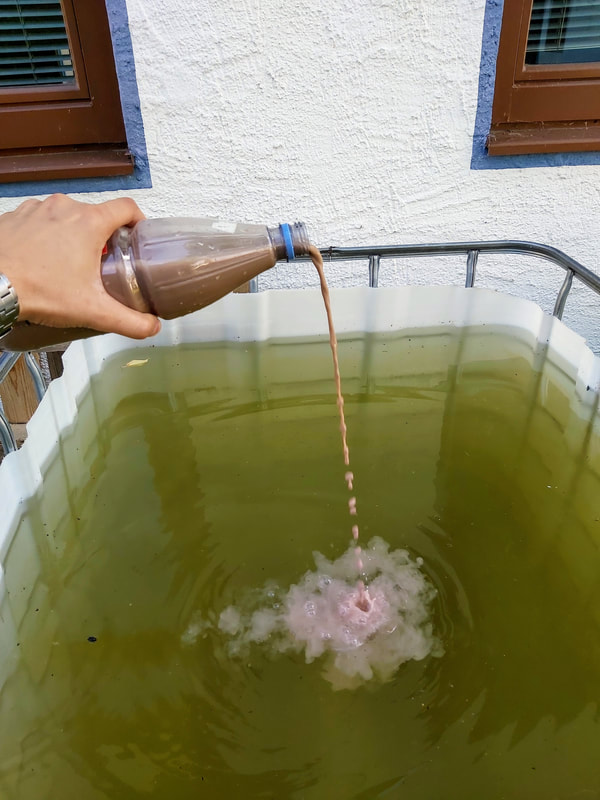Aquacosm is an EU-network connecting freshwater and marine large experimental research infrastructures. The main objective of the program is to coordinate research, develop common best practices and open both freshwater and marine large-scale research infrastructures (mesocosms) for international cross-discipline participation. Mesocosms are experimental enclosures of large volumes (1-1000 ㎥) of natural water, used to measure the separate effects of multiple stressors on whole ecosystems over weeks to years.
Transnational Access (TA) is an AQUACOSM initiative aiming at offering to interested scientists the chance to work in 37 European mesocosm facilities located at 19 AQUACOSM partners across Europe.
Transnational Access (TA) is an AQUACOSM initiative aiming at offering to interested scientists the chance to work in 37 European mesocosm facilities located at 19 AQUACOSM partners across Europe.
The Aquacosm CyanoWarm-II project was granted during the 2019 AQUACOSM-TA call, and it is being conducted in June-July 2020 at the Seeon Limnological Station (SLS) belonging to Ludwig Maximilian University (LMU) of Munich, Germany. The project is connected to the ongoing CyanoWarm project from the Institute of Biological Research in Cluj-Napoca, Romania.
MAIN OBJECTIVE: testing the competitive ability of cyanobacteria previously adapted to higher temperature in waters with different nutrient loadings.
Background: During our previous Aquacosm CyanoWarm project conducted at SLS in 2019, we observed that heat-adapted strains of the cyanobacterium Microcystis aeruginosa have a strong adaptive potential as compared to ambient-adapted genotypes, and that these adapted strains can significantly impact on the structure of freshwater communities. Those experiments were conducted in eutrophic water, which contains plenty of nutrients for microalgae.
In the Aquacosm CyanoWarm-II project we want check whether the heat-adapted strains have also stronger competitive abilities in low-nutrient environments, as compared to ambient-adapted strains. For this, we are analyzing the effect of heat- and ambient-adapted M. aeruginosa on the structure of planktonic communities from both eutrophic and meso-oligotrophic lakes located in Bavaria, Germany.
Moreover, we are interested in analyzing the usability of Bentophos® in preventing the growth of heat-adapted cyanobacteria as compared to ambient-adapted ones (as a way to prevent cyanobacterial blooms in the future). Bentophos® is a lanthanum modified clay that can be used for an effective and long-lasting phosphate precipitation. Once released into the water column, it reduces phosphate concentrations, being previously shown to effectively reduce cyanobacterial concentration in the water. Nevertheless, several studies have pointed out towards an increased ability of cyanobacteria to uptake and use nutrients under higher temperatures. Therefore, it is possible that the efficiency of Bentophos® to prevent cyanobacterial abundance will be reduced for heat-adapted cyanobacteria, which means that its usability might decrease in a future warmer climate. In the Aquacosm CyanoWarm II project we are focusing on this issue, by analyzing the growth of heat- and ambient-adapted cyanobacteria in natural eutrophic waters with added Bentophos®.
The experiment, on short: We are using a toxin-producing Microcystis aeruginosa strain which was previously adapted to high temperature. We compare its competitive abilities after being inoculated into natural plankton communities from a meso-oligotrophic and a eutrophic lake (with/without added Bentophos®). The experiments are conducted in 1000 L land-based mesocosms, with each experimental community being enclosed in 1.5 L dialysis bags, which are permeable for nutrients but not for cells.
The experiment will last 4 weeks. Every week we will check phytoplankton communities by standard cell counting and also with an AlgaeLabAnalyser. Microcystin concentration in the water will also be measured weekly with a special ELISA detection kit. After 4 weeks, plankton communities in each mesocosm will be analyzed with DNA barcoding.
Knowing plankton dynamics in the tested conditions would be highly relevant for the future of aquatic ecosystems in the context of climate change.
MAIN OBJECTIVE: testing the competitive ability of cyanobacteria previously adapted to higher temperature in waters with different nutrient loadings.
Background: During our previous Aquacosm CyanoWarm project conducted at SLS in 2019, we observed that heat-adapted strains of the cyanobacterium Microcystis aeruginosa have a strong adaptive potential as compared to ambient-adapted genotypes, and that these adapted strains can significantly impact on the structure of freshwater communities. Those experiments were conducted in eutrophic water, which contains plenty of nutrients for microalgae.
In the Aquacosm CyanoWarm-II project we want check whether the heat-adapted strains have also stronger competitive abilities in low-nutrient environments, as compared to ambient-adapted strains. For this, we are analyzing the effect of heat- and ambient-adapted M. aeruginosa on the structure of planktonic communities from both eutrophic and meso-oligotrophic lakes located in Bavaria, Germany.
Moreover, we are interested in analyzing the usability of Bentophos® in preventing the growth of heat-adapted cyanobacteria as compared to ambient-adapted ones (as a way to prevent cyanobacterial blooms in the future). Bentophos® is a lanthanum modified clay that can be used for an effective and long-lasting phosphate precipitation. Once released into the water column, it reduces phosphate concentrations, being previously shown to effectively reduce cyanobacterial concentration in the water. Nevertheless, several studies have pointed out towards an increased ability of cyanobacteria to uptake and use nutrients under higher temperatures. Therefore, it is possible that the efficiency of Bentophos® to prevent cyanobacterial abundance will be reduced for heat-adapted cyanobacteria, which means that its usability might decrease in a future warmer climate. In the Aquacosm CyanoWarm II project we are focusing on this issue, by analyzing the growth of heat- and ambient-adapted cyanobacteria in natural eutrophic waters with added Bentophos®.
The experiment, on short: We are using a toxin-producing Microcystis aeruginosa strain which was previously adapted to high temperature. We compare its competitive abilities after being inoculated into natural plankton communities from a meso-oligotrophic and a eutrophic lake (with/without added Bentophos®). The experiments are conducted in 1000 L land-based mesocosms, with each experimental community being enclosed in 1.5 L dialysis bags, which are permeable for nutrients but not for cells.
The experiment will last 4 weeks. Every week we will check phytoplankton communities by standard cell counting and also with an AlgaeLabAnalyser. Microcystin concentration in the water will also be measured weekly with a special ELISA detection kit. After 4 weeks, plankton communities in each mesocosm will be analyzed with DNA barcoding.
Knowing plankton dynamics in the tested conditions would be highly relevant for the future of aquatic ecosystems in the context of climate change.
Key people
Dr. Edina Szekeres - Research Scientist, Institute of Biological Research, Cluj-Napoca, Romania.
Dr. Bogdan Druga - Research Scientist, Institute of Biological Research, Cluj-Napoca, Romania.
Dr. Maria Stockenreiter - Assistant Professor, LMU Munich, Germany.
Dr. Edina Szekeres - Research Scientist, Institute of Biological Research, Cluj-Napoca, Romania.
Dr. Bogdan Druga - Research Scientist, Institute of Biological Research, Cluj-Napoca, Romania.
Dr. Maria Stockenreiter - Assistant Professor, LMU Munich, Germany.

